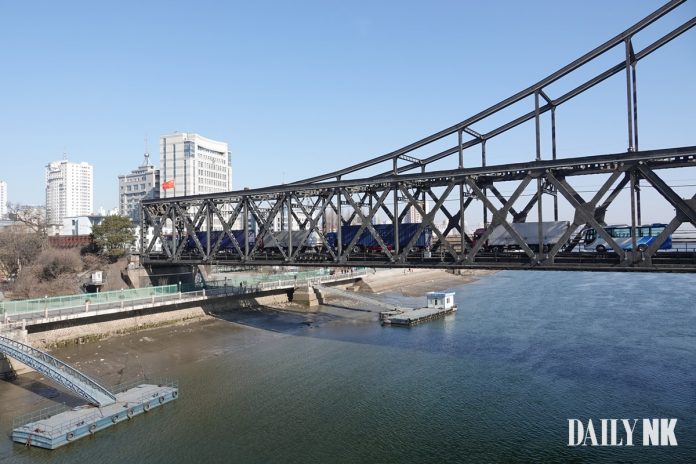
The recent expansion of North Korea’s trade with China has led to more diversity in imports compared to last year. The prices of imported goods in markets are also falling.
Speaking on condition of anonymity, a reporting partner in China told Daily NK on Wednesday that North Korean trade officials are asking Chinese traders for a more varied list of items than in the past.
As recently as last year, North Korea largely imported grains such as rice and flour, food such as seasonings and soybean paste, construction materials such as aluminum, window frames, tiles and lumber, as well as medical supplies. Recently, however, imports of consumer goods into North Korea have greatly expanded. Even imports of relatively pricey, high-end food products have increased, the reporting partner said.
One large North Korean trading company with a branch in Sinuiju has recently been importing large amounts of relatively high-end foodstuffs such as clam-flavored broth, katsuobushi powder, powdered meat broth, cane sugar and powdered ginger, in addition to soybean paste, red pepper paste, vinegar, soy sauce, sugar, soybean oil and other seasonings.
North Korean trading companies are importing not only Chinese-produced plums and apricots, but also fruits imported from other countries such as grapes, peaches, mangoes and oranges.
The reporting partner said that imports of snacks such as popcorn and puffed rice and fruit drinks have also increased as of late.
MARKET PRICES FOR IMPORTED ITEMS DROP
As distribution of imports inside North Korea expands, market prices of imported items have noticeably dropped as well.
According to a survey by Daily NK, a kilogram of Chinese-made soybean oil recently cost KPW 16,000 in Sinuiju’s markets.
As recently as the second and third quarter of last year, the price of a kilogram of Chinese-made soybean oil had climbed to KPW 30,000 in North Korean markets. In November, Chinese-made soybean oil cost KWP 23,000 in one market in Pyongyang.
The price of electronics has also plunged. A Lenovo T400 notebook computer cost USD 210 last year, but consumers can now buy one device for USD 130. The T400 is an old model released 10 years ago, but North Korea continues to import them from China for local sale.
The price of plastic windows for building rocketed to USD 60 a sheet, but the price has dropped to USD 16 with the increase of imports. However, the price is still high compared to before COVID-19, when they cost USD 7 – 8.
According to China Customs numbers released on Mar. 18, North Korea imported USD 300,520,000 worth of goods from China in January and February. This was a 158% increase from the same period last year, and a 17% increase from the same period in 2019, prior to the closure of the border.
On the other hand, exports have yet to recover to pre-pandemic levels. North Korea exported USD 26.88 million in goods in January and February — a 35% increase from last year, but 29% less than 2019.
However, North Korean agencies and individuals often import or export coal, oil and other internationally sanctioned items through unofficial trade, so North Korea’s trade volume is likely larger than what China’s official statistics suggest if unofficial trade is included.
Translated by David Black. Edited by Robert Lauler.
Daily NK works with a network of reporting partners who live inside North Korea. Their identities remain anonymous due to security concerns. More information about Daily NK’s reporting partner network and information gathering activities can be found on our FAQ page here.
Please direct any comments or questions about this article to dailynkenglish@uni-media.net.


















